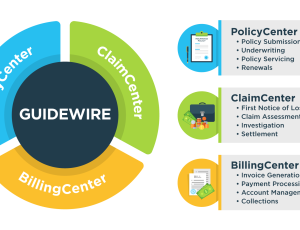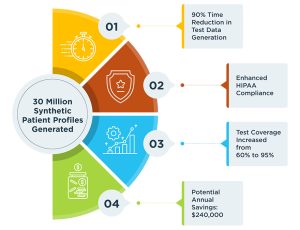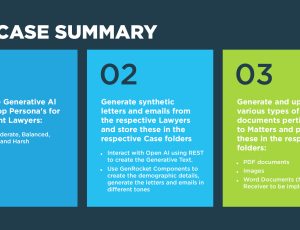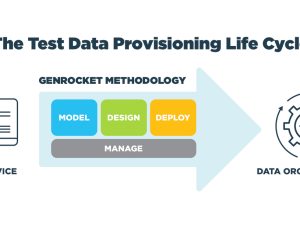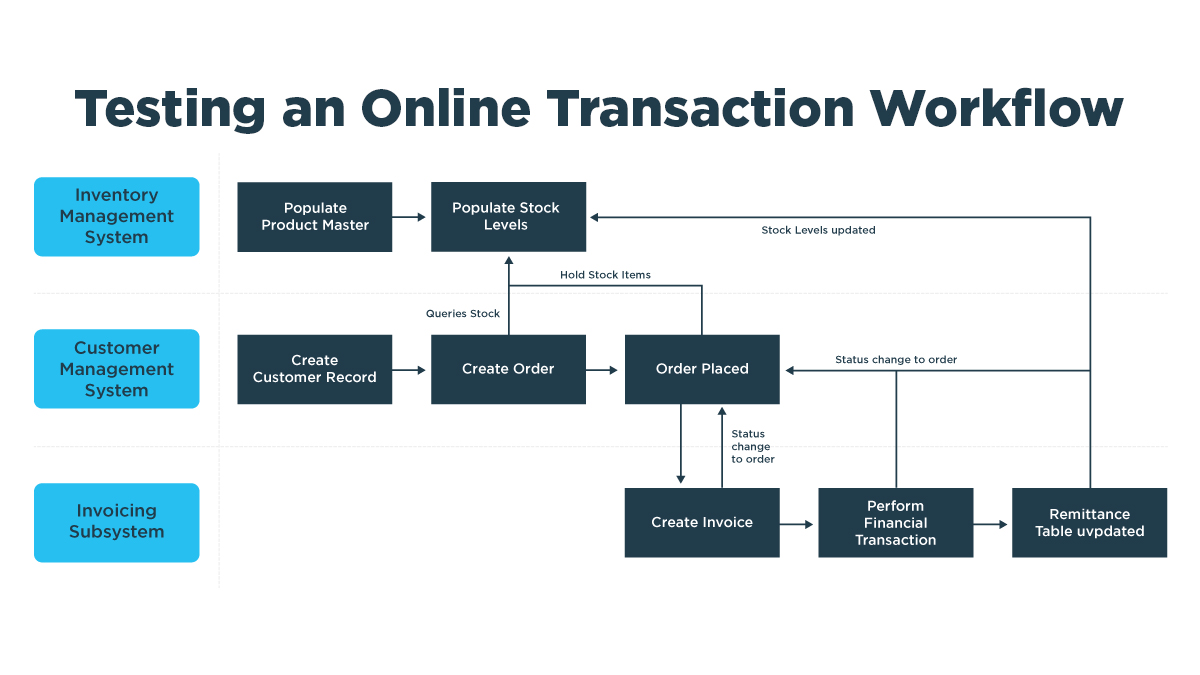
The Benefits of Provisioning Synthetic Data for Workflow Testing
Provisioning test data for workflow testing in software is fraught with difficulties due to several inherent challenges. The traditional method of copying and masking production data for workflow testing can be problematic because developers and testers have little or no control over the data variations contained in the test dataset. It’s impossible to validate business rules and boundary conditions without some level of control over data variety. This often leads to manual data creation to augment production data and adds time to the provisioning process.
For example, let’s assume we want to test a simple online transaction workflow that requires the interaction of multiple systems to successfully complete the transaction. There are many dependencies on the data used for testing each stage of this transaction flow. Test data must accurately reflect the state of the transaction as it tests positive and negative scenarios, boundary conditions and edge cases, or patterns and permutations across interconnected systems.
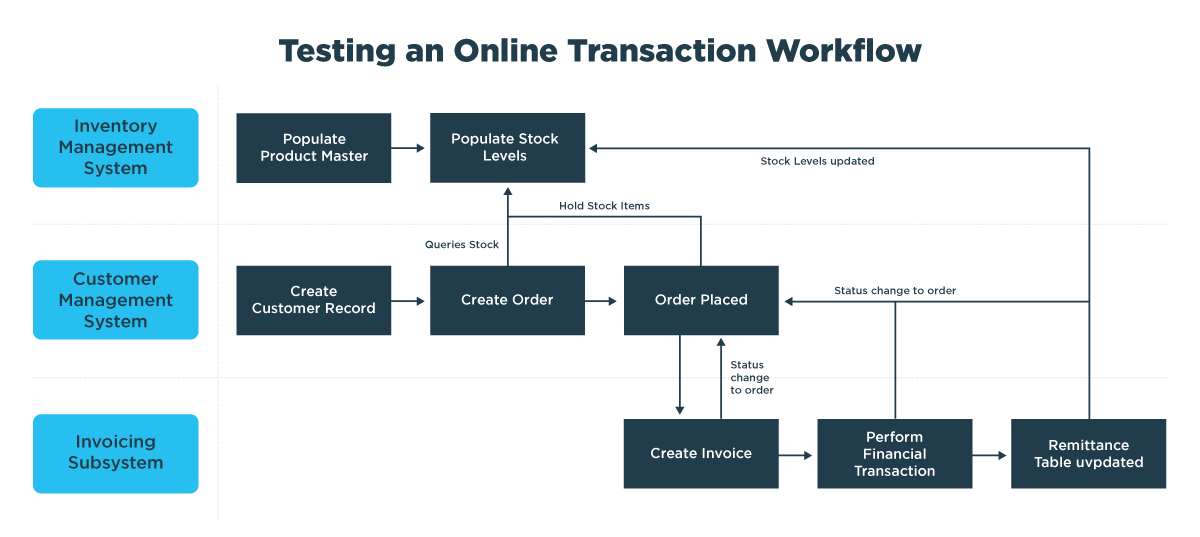
The difficulty in testing this workflow with copied, subsetted, and masked production data is the lack of control over the variety of data needed to test business rules and the accurate processing of information from beginning to end.
Here is a summary of test data challenges for workflow testing:
- Complexity of Workflows: Workflows often involve multiple steps, interactions, and data exchanges between various systems and components. Ensuring that all parts of the workflow have the correct and consistent data is complex.
- Data Dependencies: Different parts of the workflow may have dependencies on specific data states. Creating and maintaining these dependencies accurately can be complicated, especially in systems with many interconnected components.
- Data Variability: Workflows need to be tested with a variety of data inputs to ensure robustness. Ensuring that test data adequately represents real-world scenarios for both positive and negative test conditions add to the complexity.
- Volume of Data: Comprehensive workflow testing often requires a large volume of test data to cover all possible scenarios, including patterns, permutations and edge cases. Generating and managing this volume and variety of data is resource intensive.
- Consistency and Integrity: Ensuring that test data remains consistent and maintains referential integrity across different stages of the workflow is crucial. Any inconsistency can lead to incorrect test results.
- Environmental Complexity: The test environment should closely parallel the production environment which may be composed of diverse integrated systems and data environments. Simulating this complex systems environment with quality test data can be challenging.
- Privacy and Security Concerns: Test data must often be anonymized or masked to comply with privacy regulations and security policies, adding an additional layer of risk and complexity.
- Automation Challenges: Automating the provisioning of test data can be complex, especially for workflows involving multiple systems and dynamic data states. The alternative is the costly and time-consuming process of manual data creation.
- Maintenance Over Time: Test data needs to be maintained, refreshed and updated as the software and its workflows evolve, which can be burdensome in agile development environments.
- Tools and Resources: Development environments and testing frameworks can present a mixed bag of tools and resources posing a significant integration challenge for traditional test data management systems.
The GenRocket Solution to Overcome These Challenges
GenRocket offers a robust solution to address these challenges through its Test Data Automation (TDA) platform. The GenRocket approach is to provide one data platform for generating synthetic data or copied and masked production data.
With GenRocket, the data provisioning process is controlled by the creation of Test Data Cases that contain executable instructions for provisioning any volume, variety or format of test data on demand. This makes test data delivery a real time process that can be orchestrated to deliver the precise data needed at the exact point in the workflow via any automated test tool or framework.
Here is a summary of the capabilities and benefits offered by the GenRocket platform:
- Test Data Design and Reusability:
- Test Data Case Setup: Test data designs, called Test Data Cases, are set up once and are infinitely reusable, reducing time and effort associated with test provisioning.
- Consistency: GenRocket generates fresh, consistent, and identical test data every time, ensuring the reliability and repeatability of tests.
- Controlled Data Generation:
- Flexibility: Test data can be controlled and conditioned to meet any test case requirement, including various patterns and permutations, positive and negative scenarios, and rule-based scenarios.
- Dynamic Data: Data is dynamic and remains consistent throughout the transaction workflow.
- Referential Integrity and Compliance:
- Integrity: All synthetically generated data tables are accurately modeled according to a supplied database schema or data definition language (DDL) and maintain referential integrity among all data table relationships.
- Security: Synthetic data is 100% secure and compliant with global data privacy laws, eliminating concerns about data breaches and regulatory compliance.
- Scalability and Flexibility:
- Volume and Format: Test data can be generated in any volume, variety and output format with synthetic data designed to replace or augment production data as needed.
- Self-Service: Test cases can be requested and executed on a distributed self-service basis, empowering teams to generate the data they need independently.
- Modification and Integration:
- Version Control: Test Data Case can be modified, and version controlled with an easy-to-use questionnaire as a template.
- Integration: GenRocket’s distributed runtime engine and the synthetic data it generates can be orchestrated and integrated into any testing framework using API calls.
- Extended Testing Capabilities:
- Performance and Regression Testing: Test Data Case can be quickly modified for performance and regression testing at every level of testing.
- Parallel Systems Testing: Test data can be generated on demand and in real-time to simultaneously test parallel systems.
- System Migration Testing: Test Data Cases can serve as building blocks and easily combined into Stories and Epics for large-scale system migration testing.
Summary of Benefits
GenRocket’s Test Data Automation platform overcomes all of the challenges and delivers multiple benefits for workflow testing:
- Efficient Test Data Provisioning by reducing the time and effort in setting up and maintaining test data for any kind of test case.
- Consistency and Reliability by delivering the controlled and conditioned data for repeatable test case execution.
- Flexibility and Scalability to support any test case requirement and generate accurate synthetic data or queried production data in any volume and format.
- Security and Compliance to ensure there is no exposure of sensitive data in a lower environment and total compliance with data privacy laws.
- Enhanced Testing Capabilities with easily provisioned and repurposed test data for multiple testing categories including performance, regression, and system integration testing.
- Ease of Use that empowers dev and test teams with distributed self-service capabilities and seamless integration with development tools, testing frameworks and fully automated CI/CD pipelines.
By addressing the key challenges of test data provisioning, GenRocket enhances the quality and reliability of workflow testing, ultimately leading to better software products, accelerated product delivery, and increased levels of organizational efficiency.
We’ve prepared a demonstration video to illustrate the GenRocket platform in action and how it can be used for complex workflow testing.
Click on the video below to view this informative demonstration and then request a personalized demo to address your specific application testing requirements.



